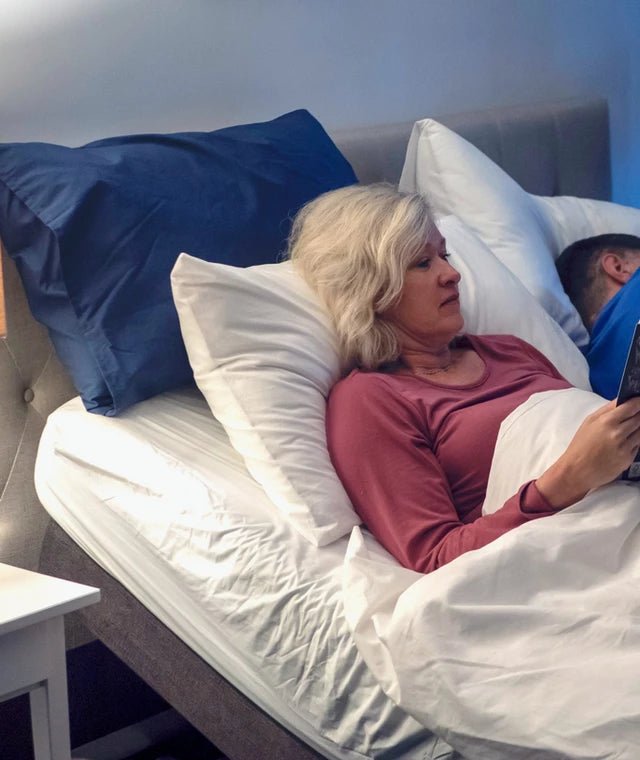Has it happened to you that sometimes you arrive at hotels, or friends' houses to stay for a few nights, and you feel like you sleep terrible? Or that you struggle much more to be able to fall asleep?
If you had started to feel a pattern, but you were not sure what was happening, you can rest easy, because this has a very simple explanation, and in reality, it all lies in psychology.
In this blog, we will be talking about what we experience at night in unknown places, and what could help us sleep.
According to an article in La Vanguardia , the reasons attributed to the "first night effect" was the change in sleep hygiene between your bed and a different one, since it has been proven that nighttime routines help the brain to relax. and to sleep faster, and although it could be true, a recent study from Brown University has revealed that when we sleep in a place other than the one we are used to, at least for the first time, our left hemisphere remains alert.
You may have heard that this is what happens with dolphins, or with other mammals or birds that sleep this way naturally for survival reasons, but apparently the human body has that same capacity on special occasions. Of course, our brains aren't programmed to tolerate that kind of bad sleep for very long, so it's only natural that we feel tired the next morning.
Why the left hemisphere?
As you have probably heard, each hemisphere of our brain has specific functions. Our left hemisphere seems to be more sensitive to sounds, so it's easier for the brain to stay alert to any particular noise.
This alert phenomenon while we sleep is called “First Night Syndrome,” and it is not considered a sleep pathology.
What could we do to overcome this state of alert?
If we practice a sleep routine at home, doing it in this new environment would help a lot, since as we have said before, these habits help the body and mind to relax.
It is also recommended to walk around the room, and repair everything that we know could interfere with our sleep at night, such as open windows facing the street, cover the windows more if a lot of light enters through the blinds, bring earplugs, have enough blankets on hand in case you get cold at night, etc.
Finally, it is also recommended to do relaxing stretches before going to sleep, or the use of melatonin for only that first night, since for the second, people begin to sleep better and wake up less and less. The more time you spend in one place, the easier it will be to do your routine there and go back to sleep like before.
There is a saying in Japan that says "If you change your pillow, you will not be able to sleep" it is true that a different pillow can make you feel different, so we recommend that you travel with yours. By clicking here you will be able to see our catalog of pillows , where you will be able to choose one of the most comfortable options to replace yours, and increase the probability of having a restorative sleep wherever you go!
References:
Garrido, M. (2016). Why we didn't sleep well the first night in a new place. retrieved on August 2, 2022, from https://www.lavanguardia.com/vivo/psicologia/20160615/402524205100/dormir-mal-primera-noche.html
- Why we sleep worse in a bed that is not ours - BBC Ne ws Mundo. (2016). retrieved on August 2, 2022, from https://www.bbc.com/mundo/noticias/2016/04/160422_salud_dormir_mal_lugares_desconocidos_cama_extrana_lb



